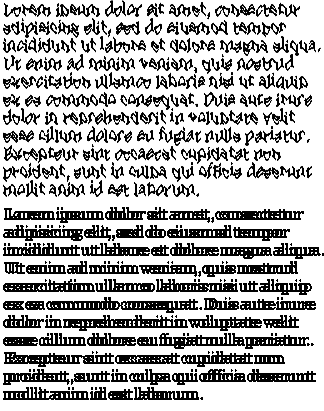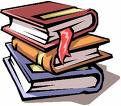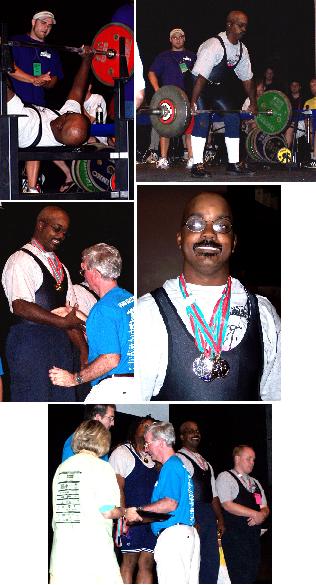Reading Aloud with Dyslexia
January 24, 2012
Rick Lavoie, an expert in educating students with special needs, teaches a room of teachers, parents, social workers, and other service providers what it is like to read aloud with a learning disability. As he points out several times, it is NEVER easy. Patience and positive reinforcement are critical.
Dyslexia & Pathways in the Brain
January 24, 2012
The first short video provides some insight into current research on neural pathways in individuals affected by dyslexia.
The second video focuses on brain mapping and promising findings about the effects of multi-sensory phonics-based instruction on neural pathways. MRI studies show that the type of instruction we provide using Orton-Gillingham methods and Wilson materials can create new pathways in the brain and activate the left posterior sections of the brain responsible for rapid decoding and automatic word recognition.
It takes time and patience, but most of our students show improvement within a few months, and nearly all show improvement within a year. Perhaps most crucial for adult learners is the realization that they can learn how to read. That moment of realization changes lives.
The following video focuses on children, but the ideas hold true for adults as well. The process of creating new pathways may take longer for some adults, but it still happens…
Irlen Syndrome
September 20, 2010
 At one of our recent lessons, an adult learner mentioned that her eyes were bothering her. I asked if she wanted to try a pair of our non-prescription reading glasses, but she said that they wouldn’t help. She’d tried glasses in the past, but they didn’t stop the text from moving around on the page in a swirling pattern, which made her feel dizzy and sick. Then it hit me. I’d heard about something like this at a recent conference and then read about it online:
At one of our recent lessons, an adult learner mentioned that her eyes were bothering her. I asked if she wanted to try a pair of our non-prescription reading glasses, but she said that they wouldn’t help. She’d tried glasses in the past, but they didn’t stop the text from moving around on the page in a swirling pattern, which made her feel dizzy and sick. Then it hit me. I’d heard about something like this at a recent conference and then read about it online:
“Nearly half of this spring’s GED graduates suffer from Irlen Syndrome, a perceptual disability that makes words dance on the page because of the way the brain interprets black print against a white page. These graduates passed their GED by using simple, colorful plastic sheets—provided by Forsyth Tech— that they placed over the printed page to correct the problem. Forsyth Tech was the first community college in North Carolina to test for Irlen and provide treatment. Of the 2,015 candidates who came through Forsyth Tech’s GED orientation sessions in 2009, 890, or 44 percent, needed color overlays. ” [Read more on Forsyth Tech’s Web site.]
The Irlen Institute describes some of the symptoms of Irlen Syndrome: “Some individuals experience physical symptoms and feel tired, sleepy, dizzy, anxious, or irritable. Others experience headaches, mood changes, restlessness or have difficulty staying focused, especially with bright or fluorescent lights.” Specific reading problems include misreading words, problems tracking from line to line, skipping words or lines, hesitating frequently, and/or miscomprehending texts.
I didn’t have any colored overlays handy, but I did have some blue index cards. When the student placed a card below a line of text, she was able to read it without a problem. Her symptoms disappeared completely within 10 minutes.
Given the high proportion of Forsyth Tech students who tested positive for Irlen Syndrome, it seems likely that many of our students might suffer from it as well. It’s worth checking to see if a colored index card or a colored overlay make a difference for your student. We’ll soon be stocking both in the library at Lakewood. Please let us know if you find them useful.
The image of ‘dancing text’ (see above) was found here on wikipedia.
New library resources!
May 6, 2010
 Thanks to our fabulous tutors, we have a number of new resources in the Adult Literacy Library!
Thanks to our fabulous tutors, we have a number of new resources in the Adult Literacy Library!
- Betsy and Bonnie each contributed a number of fabulous worksheets to the Homework Sharing Binder located under the Wilson materials. (The index at the front of the binder does not yet reflect these additions, so make sure to flip through the binder to see what’s new.) Also – Betsy writes about her contributions in the previous blog post, so check that out, too!
- Karen recently donated more than 20 books, including Elijah of Buxton; Bud, Not Buddy; Fantastic Mr. Fox; Stone Fox; Rosa Parks; The Brown Condor: The True Adventures of John C. Robinson; Jackie Robinson; Spacebusters: The Race to the Moon; Eruption! The Story of Volcanoes; Journey of a Humpback Whale; Tiger Tales and Big Cat Stories; Growl! A Book about Bears; Fluffy Goes Apple Picking; The Secret of Foghory Island; Horse Heroes; Earthquakes and other natural disasters; Shark Attack!; and others that are still on their way. Wow!
- Sarah (Bell) recently donated copies of Wilson Student Workbooks (A & B) for Steps 1-6. We are keeping them in our office in case the library copies are not available when a tutor needs to make some copies. Just see a staff member if you need to grab one to make some quick copies. Great (and generous) idea, Sarah!
- Pushti – AC Member and Volunteer – has just created two huge binders of resources from the Florida Center for Reading Research. The worksheets and games cover all aspects of reading – alphabetics (phonemic awareness, phonics, and sight word recognition), fluency, vocabulary, and comprehension. The resources are organized by reading component and level. Fortunately, there are a number of great worksheets and games perfectly suited to supplement our Wilson and Megawords materials. While they were created for primary and secondary school students, most will work just as well for adults.
- One of our partner nonprofits, the Augustine Project, shared a number of phonics games that can be used to supplement our Wilson materials. They are located in the file box on the library book check-out table (under the window). We will be adding more games as we find/create them.
We will continue to add new items to our library, so keep checking the shelves and this blog for updates. And if you know someone itching to make a book donation, please send them the link to our online wishlist, which contains a growing list of desired books (with links to publisher sites).
Many thanks to all!!!
Homework Sharing
March 28, 2010
Hi fellow tutors,
I am tutoring a wonderful student named Rufus who is at Wilson Level 1.2A, and wanted to let you other tutors know that I recently put some things in the Homework Sharing Notebook (in the Library) that I’ve worked on with Rufus. The first thing is a lot of sentences I’ve come up with for reading and dictation. I’ve found the ones in the Wilson books great, but needed more, so I’ve written some, and thought I’d share them. Sight words are in red and vocabulary words are in black. I also got an idea for homework from the notebook of scrambling sentences and letting Rufus try to unscramble them (thanks, Rebecca!) Well, he loved doing this and asked for more of those. So I wrote out more of those and put those in the notebook, too.
I think if we all take a few minutes now and then to run off a copy of some of the more successful homework sheets we’ve come up with, we could save each other some time. There are lots of good ideas in that notebook!
Betsy Dain
What is your learning style?
February 8, 2010
.JPG)
Auditory?
Reading/Writing?
Kinesthetic?
I’m Kinesthetic-Visual. That means I need to interact with people and things to learn and that I need to see information in diagrams or charts to be able to process it. I have learned that about myself after 31 years of life and years of schooling- and it was just reinforced and validated after I took this VARK cool quiz (link below).
I would highly recommend this quiz for tutors as a good resource.
VARK- a guide to learning styles
Here are my suggestions for tutors in visual diagrammatic list form (with interactive components in the suggestions):
1- Take the quiz yourself.
It takes 5-10 minutes.

Find out your learning styles.
The “results” part is my favorite part because they give you your results in the learning style you are (for example, my kinesthetic results page had an interactive ball I had to move to find out my results)
You may be a mix of styles, so be sure to check out each page of your result
The results page explains INPUT, STUDY TECHNIQUES and OUTPUT.
2. Try the quiz with your student.
You most probably need to read the quiz and their results to your student.
This website is NOT designed for low literacy levels. Read the rest of this entry »
What we’re reading
January 25, 2010
 The most popular* novels and books at the Durham Literacy Center are:
The most popular* novels and books at the Durham Literacy Center are:
- Martin Luther King, Jr. (The Activist Series by Grassroots Press)
- Harriet Tubman (The Activist Series by Grassroots Press)
- Nelson Mandela (The Activist Series by Grassroots Press)
- Because of Wynn-Dixie by Kate DiCamillo
- The Fantastic Mr. Fox by Roald Dahl
- Stone Fox by John Gardiner
- Holes by Louis Sachar
- The Alchemist by Paulo Coelho
- Indigo Summer by Monica McKayhan
- Seedfolks by Paul Fleischman
* Based on library checkouts; the use of books during lessons; and feedback from students.
Books officially checked out of the DLC library by students since August 2009 include:
August 2009
- Indigo Summer by Monica McKayhan
- Trouble Follows by Monica McKayan (Durham Library)
- Martin Luther King, Jr. (The Activist Series by Grassroots Press)
How are you using your literacy tool?
November 16, 2009

Hello DLC community!
This is Yashna, visiting guest blogger, and DLC fan for life. First- I want to say that no one at DLC got me to write this. This post is a surprise to them too! I am moved to write about all this on my own.
My work with DLC has created a deep belief and passion for the importance of literacy education. Since I left DLC a year ago I have been searching for answers or truths to many things and so far this year, where ever I go (18 cities and towns in the U.S. and 2 in India), what ever I do- the importance of literacy is a repeated life lesson– along with the importance of love (but that is a topic for another time).
Currently I am working towards building with hundreds and eventually thousands of other people towards the United States Social Forum in June 2010. I have been doing some reading and research in preparation for this because I am a bit nervous as to what strength and knowledge it would take from me and I want to be prepared. I have conjured up courage in part because of the inspiration of the everyday commitment students make by showing up to DLC.
Pushti – New AmeriCorps Member
August 10, 2009
Hello All!
I want to take some time to introduce myself. My name is Pushti and I officially began my service at the DLC through AmeriCorps this past week. I recently graduated from University of NC at Charlotte with a BS in Biology and Psychology. I plan on continuing my education with Masters in Psychology; however I wanted to take a year off to serve. The Durham Literacy Center is a perfect match, and I am very delighted to be here. So far the experience has been nothing, but positive. I am very grateful to be working with people that are nice, caring, and passionate. Lastly, I want to thank Lark for all her help. I know that I have big shoes to fill, but I am ready to take on the Challenge. I am very ecstatic about joining the DLC and looking working to a wonderful year head 🙂
Pushti
Jermaie Harden – Olympic winner!
June 9, 2009
Jermaie Harden won four medals in Powerlifting at the Special Olympics North Carolina Summer Games. He won gold medals in the bench press, deadlift, and triple combination competitions and a silver medal in the squat competition. Congratulations, Jermaie!

